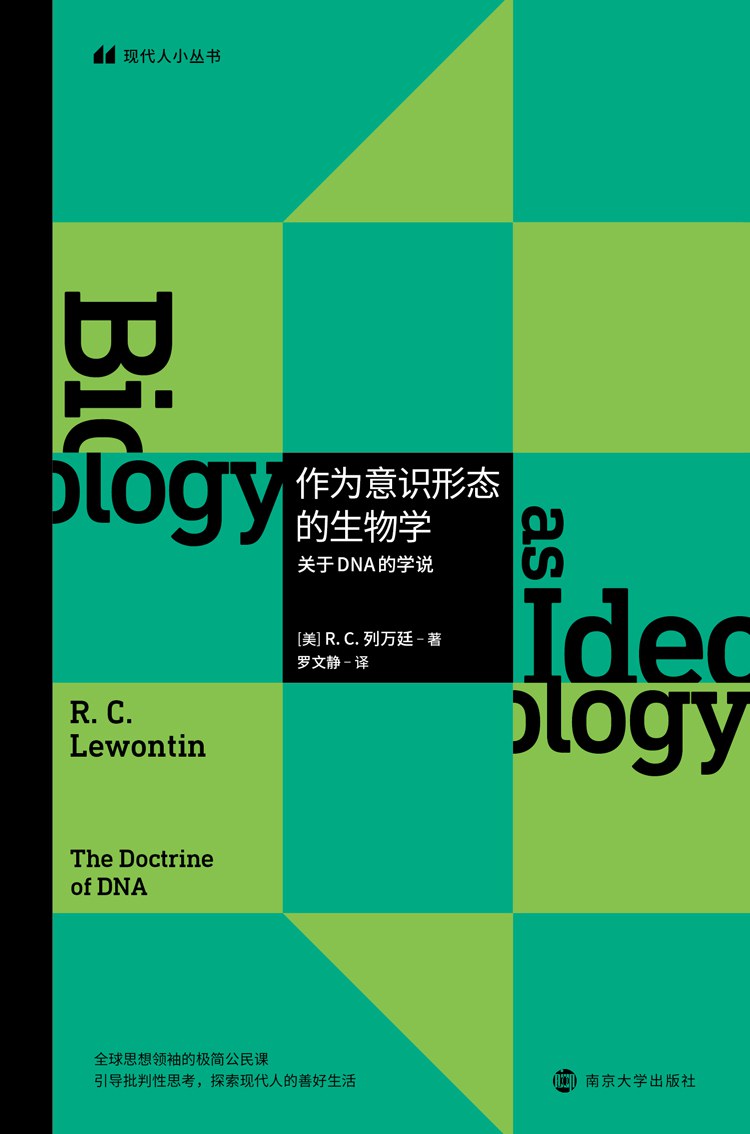WULOLIFE
《作为意识形态的生物学: 关于DNA的学说》作者: [美] RC 列万廷 原作名: Biology as Ideology
《作为意识形态的生物学: 关于DNA的学说》作者: [美] RC 列万廷 原作名: Biology as Ideology
Couldn't load pickup availability
Description
内容简介 · · · · · ·
“现代人小丛书”
全球思想领袖的极简公民课
引导批判性思考,探索现代人的善好生活
◆ “不要将科学交付给专家,不要被科学迷惑,
"
···
【内容简介】
Download DNA组计划开启了生命科学的新纪元。基因对人类有哪些影派各执一词:基因组成了个体,人类本性是由基因编码的,基因组成了文化和RC列万廷对这些观点的回应。
列万廷立足生物学,对当代科学、意识形态等问题展开了批判式的解读。他运用达尔文的生物进化论、福尔摩斯的“记忆阁楼”、商测试、杂交玉米等妙趣横生的实例,综合分析了基因、有机体、环境这“三重螺旋”,拆解了“纯粹的生物科学”之神话,并警醒大众,对科学、专家要时刻保持警惕。
···
【媒体/学者推荐】
他的作品是遗传学领域非常优秀的作品。
——[美]史蒂芬·杰伊·古尔德 著名古生物学家、科普作家
并延续了科学怀疑主义的传统。
——《独立科学新闻》(Independent Science News)
···
【编辑推荐】
1. 本书作者RC 是世界知名的人口遗传学家,率先将分子工具引入生物学;他同时也是一位极具批判性的思想家,常年为《纽约书评》撰稿,为公众撰写了大量简明易懂的科普文章,坚持反对基因决定论以及将科学视为“纯粹”的观念,反对利用科学来使结构不平等合理化。他曾获美国自然学家学会的塞沃尔·赖特奖、与诺贝尔奖齐名的瑞典皇家科学院克拉福德奖等殊荣。
2.随着对DNA的进一步了解,人们越来越关心与基因相关的话题。是否早在我们诞生之前,基因就决定了我们的智商和成就高低?我们要如何理解基因决定论的不合理性?书中不乏对社会生物学开山之作——爱德华·O.威尔逊的《社会生物学》的反思和批判。作为一线专家,作者挑战了自己研究领域的科学和哲学基础及其社会、文化和政并运用晓畅的语言拆解了一个“纯粹的生物科学”之神话,可视为对近年热门的基因学争论的一个回应。
3.智商测试能真实地反映智商吗?农民如果不再种植杂交玉米,转而种植纯种玉米,会发生什么?为何未成年人不喜欢吃菠菜而成年人喜欢?《格列佛游记》中的小人国在现实中能存在吗?书中充满了此类有趣的话题,兼顾知识性与趣味性。
4.本书讨论的话题历久弥新,至今仍不过时,能引起读者的共鸣。
作者简介 · · · · · ·
【作者简介】
RC Lewontin, 1929—2021,曾荣获瑞典皇家科学院克拉福德奖、美国自然学家学会塞沃尔·赖特奖等。他是发展群体遗传学和进化论数学基础的先驱,率先将分子生物学应用于遗传变异、生物进化等领域。他曾于美国北卡罗来纳州立大学、罗The Triple Helix: Gene, Organism, and Environment (The New York Review of Books)
···
【译者简介】
罗文静:香港大学跨学科语言教学硕士,从事英文教学,曾担任市级政务翻译。
